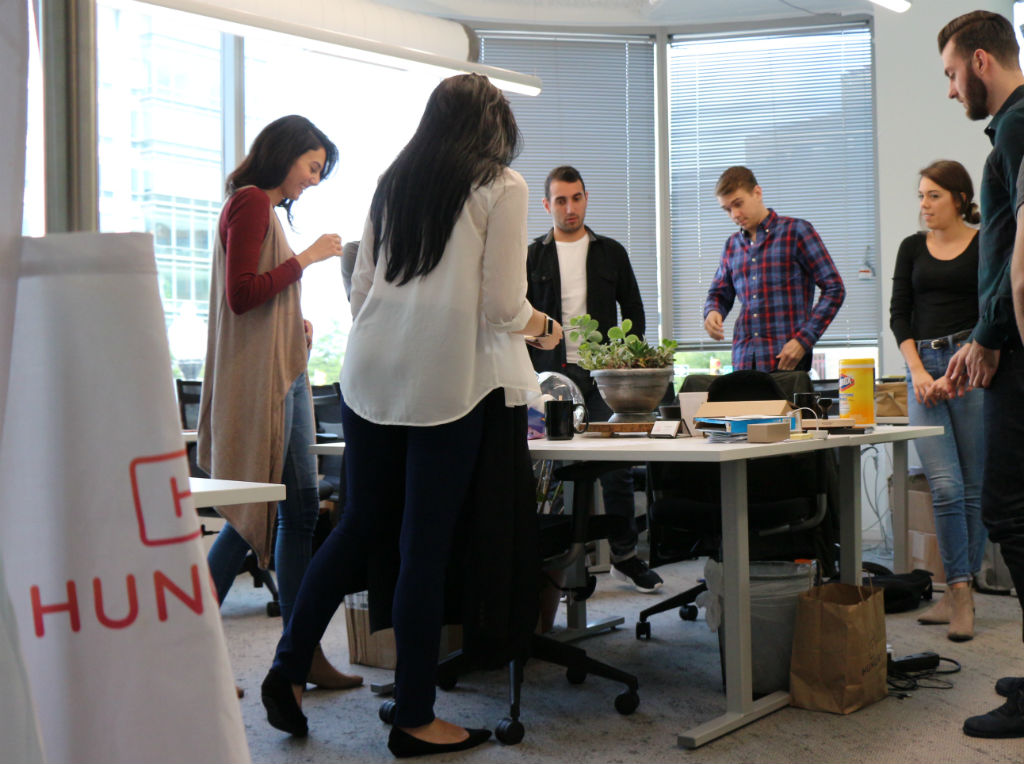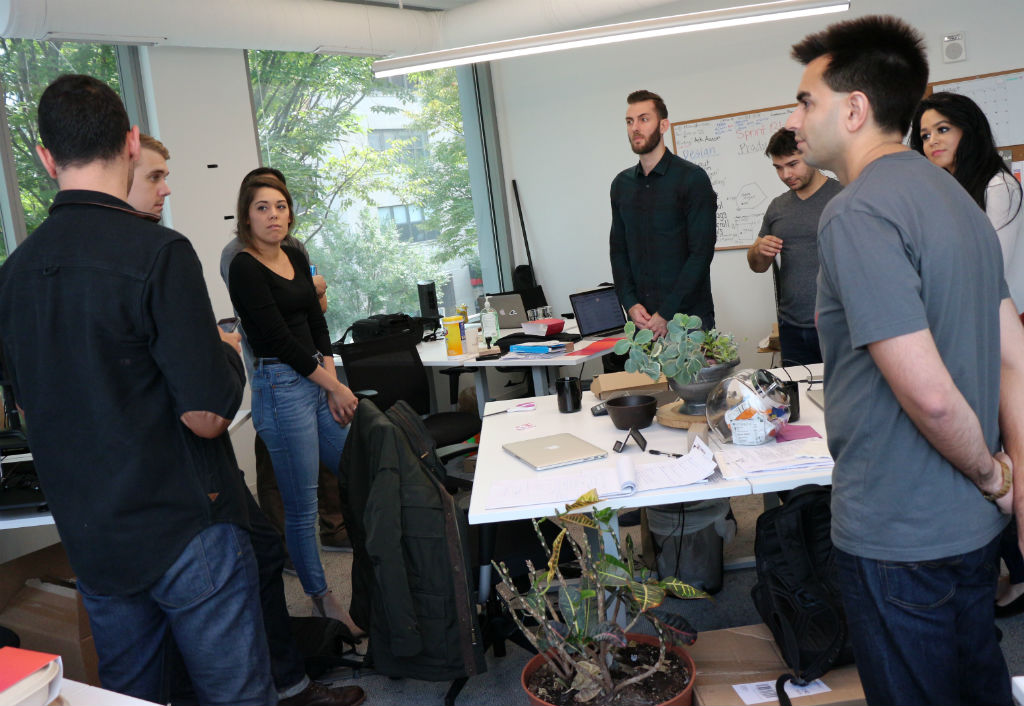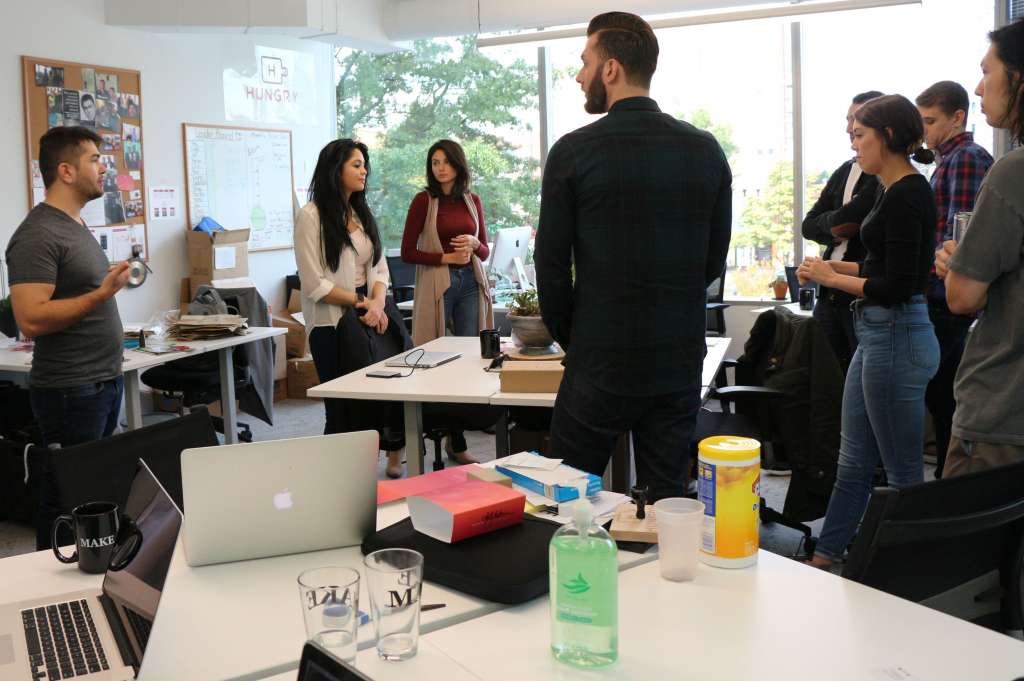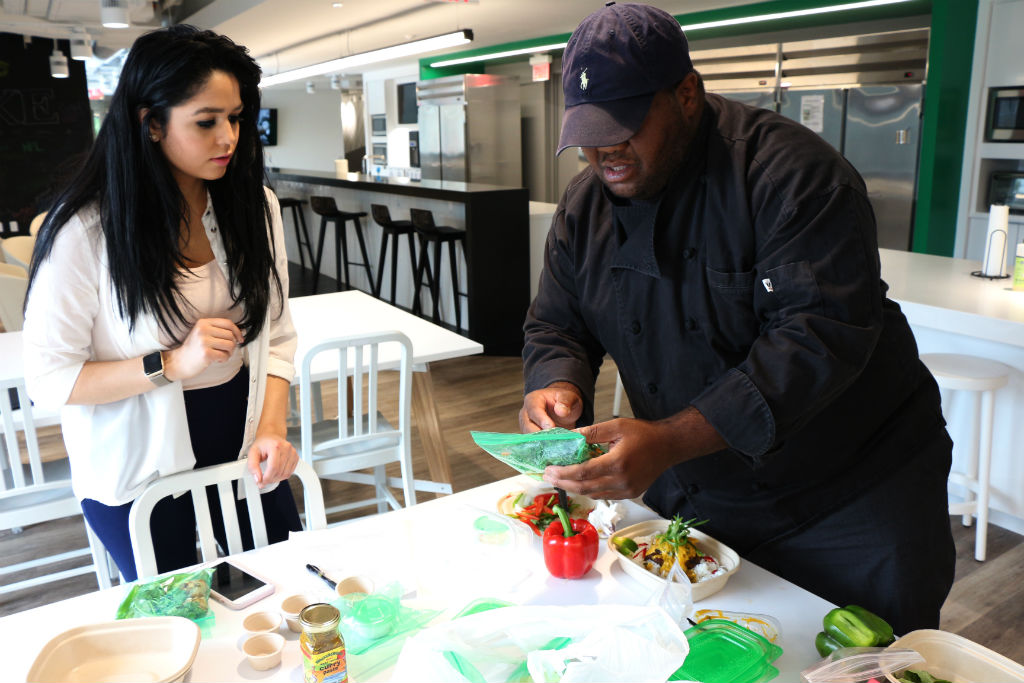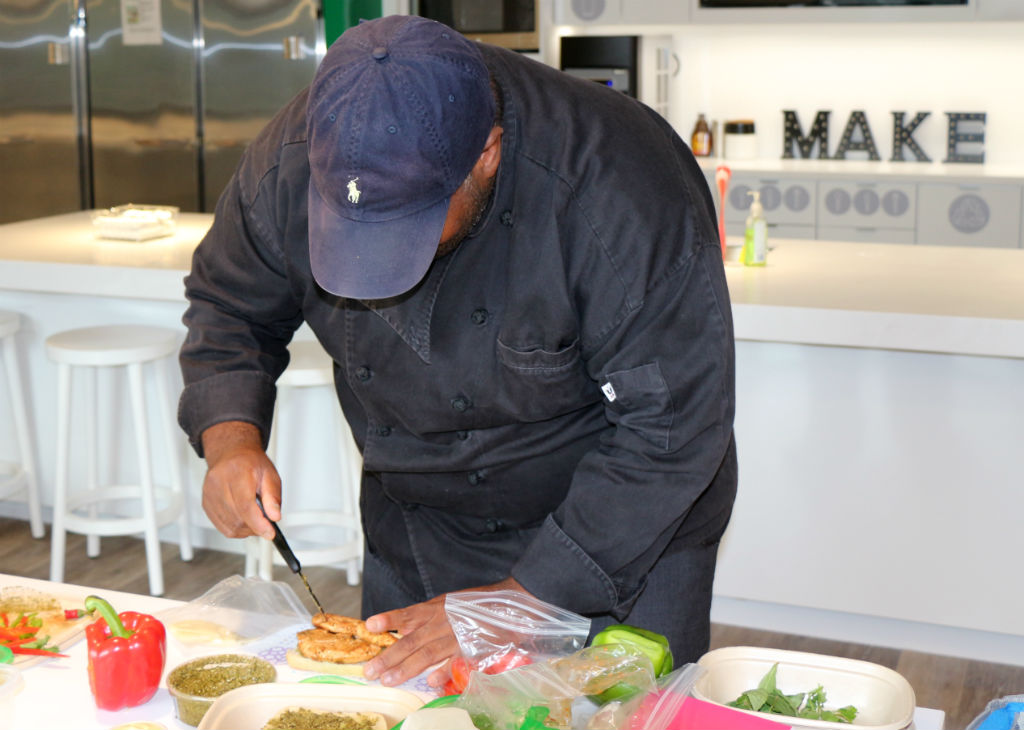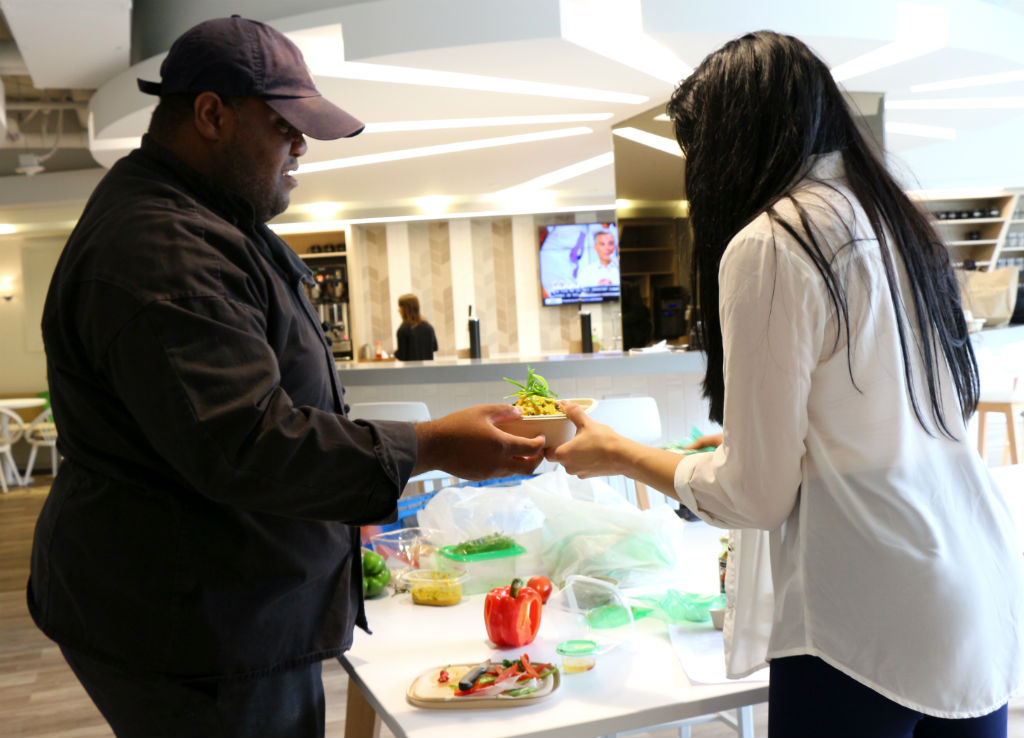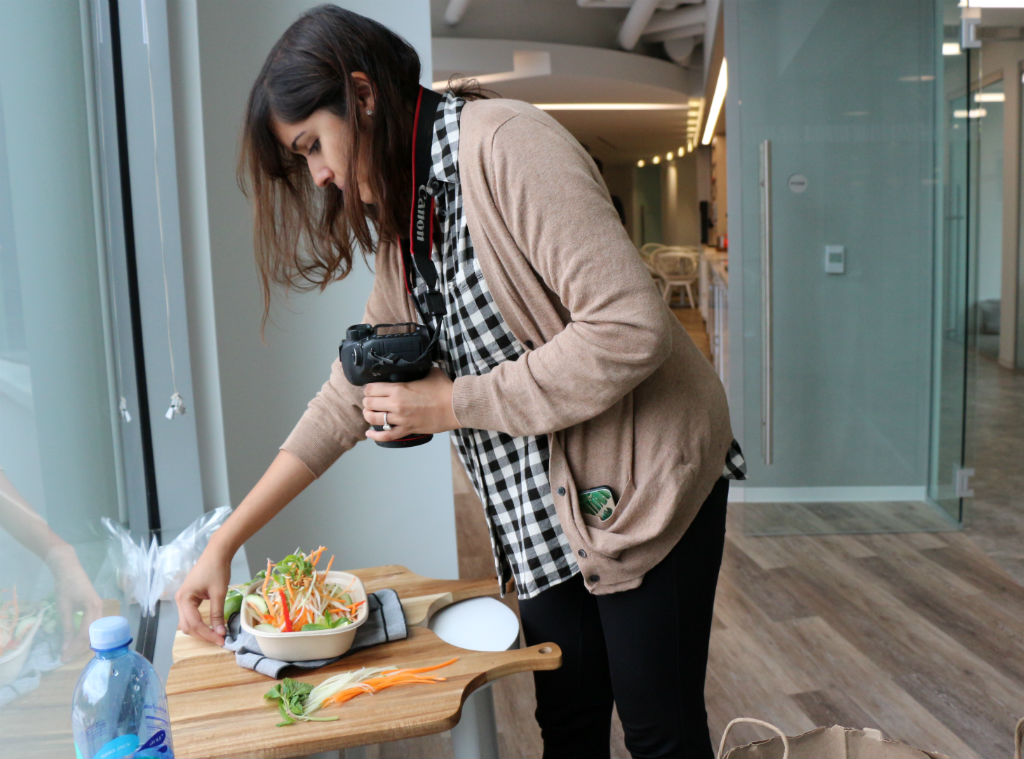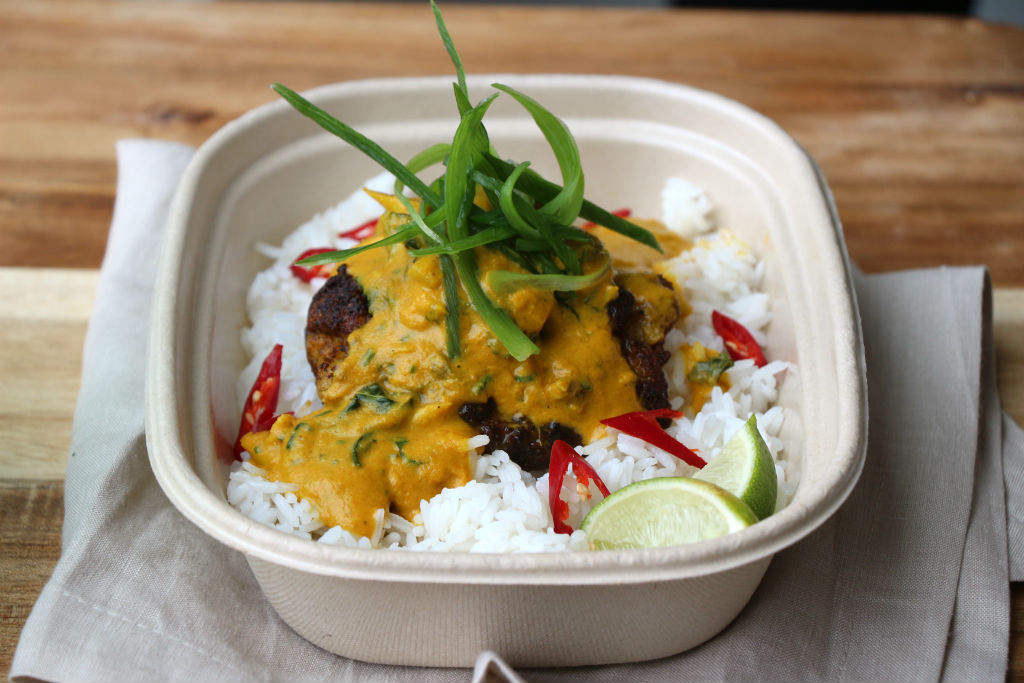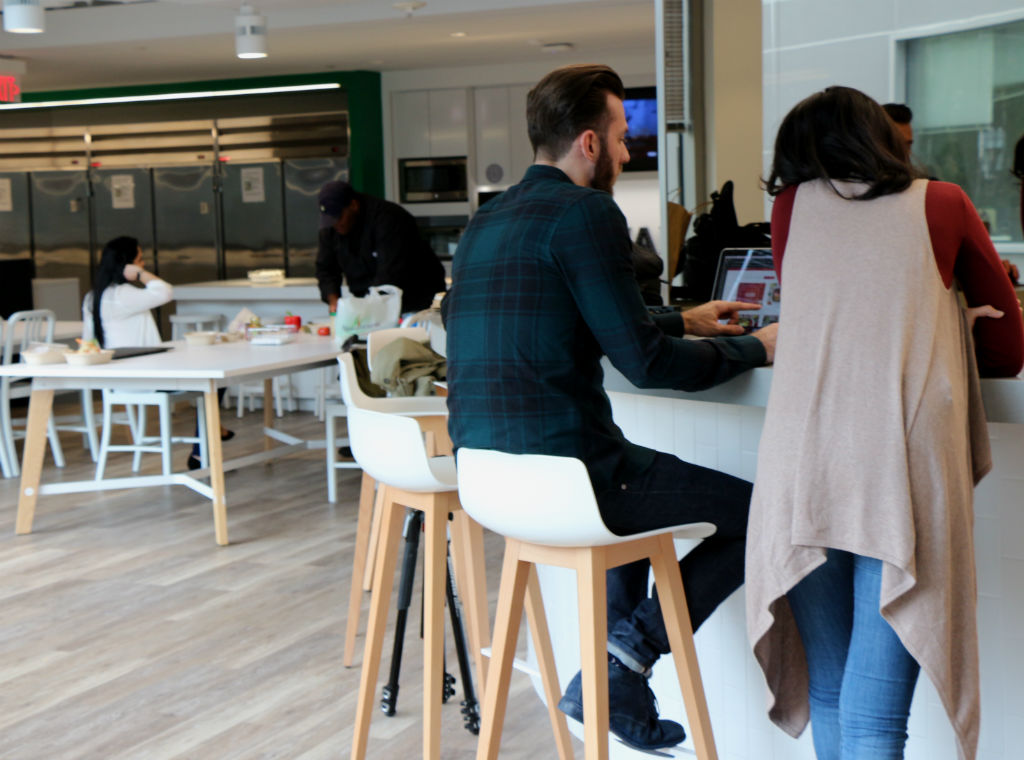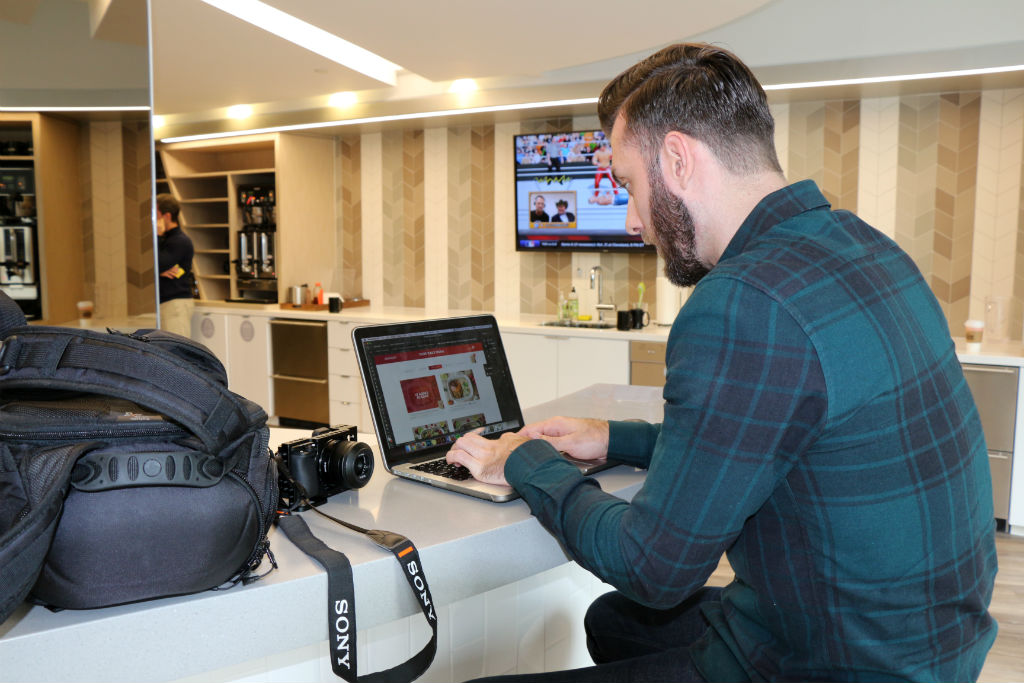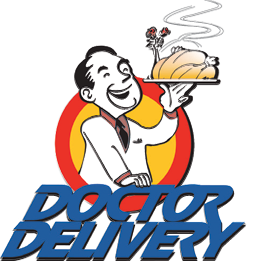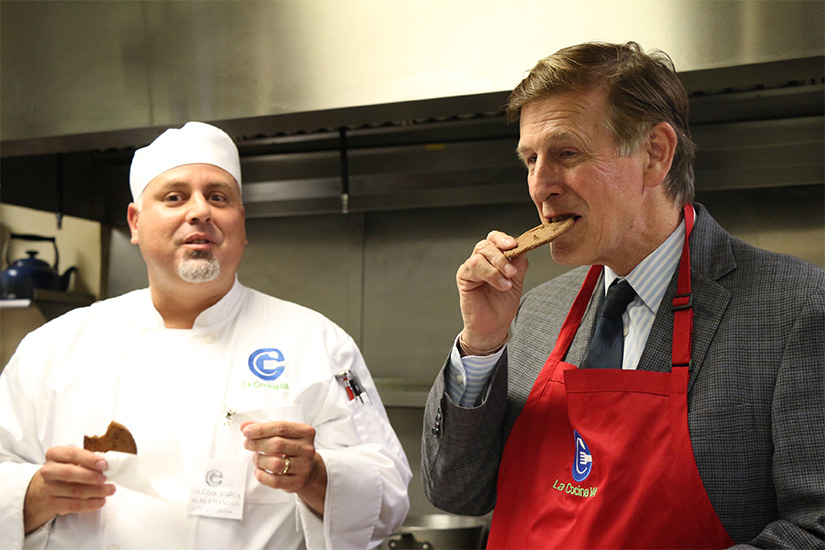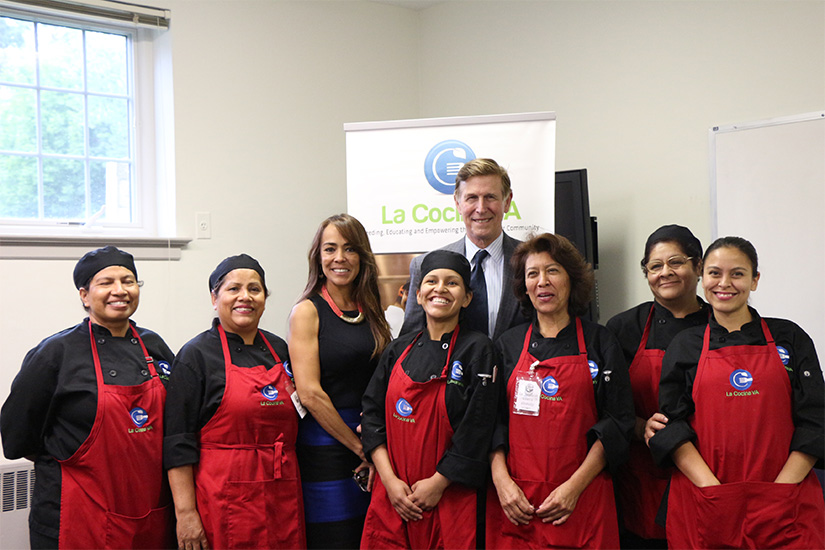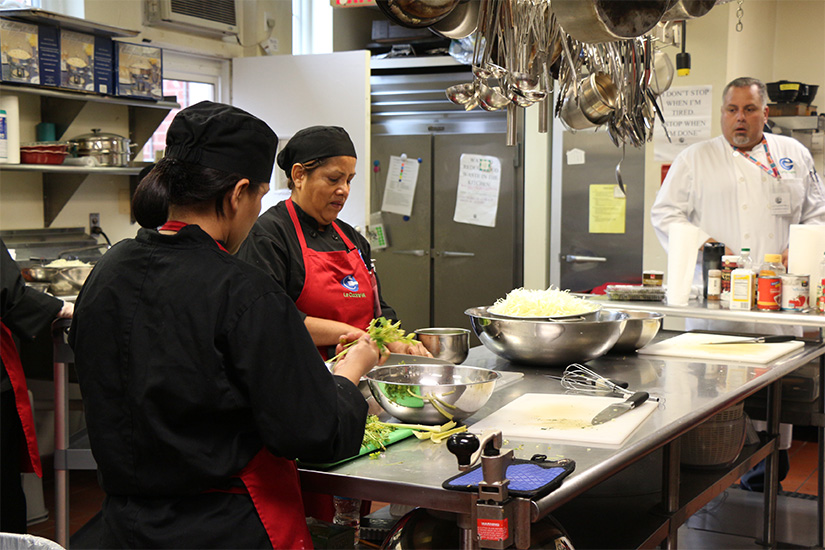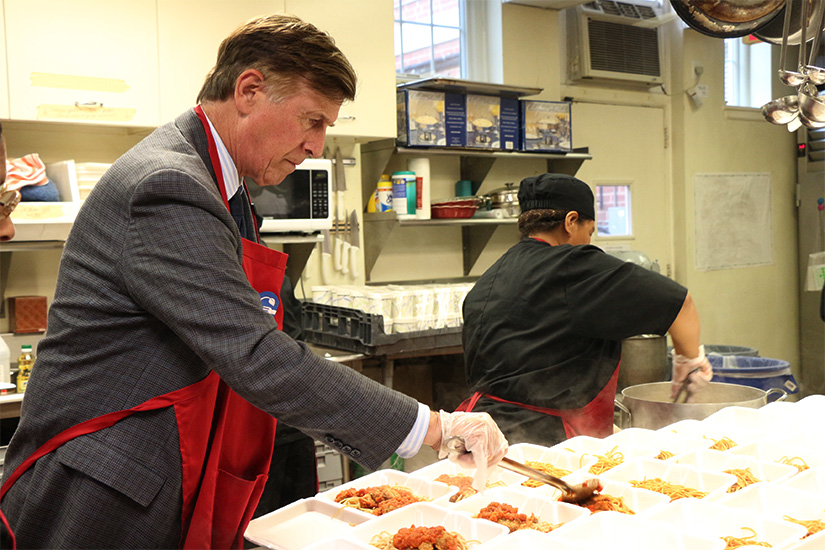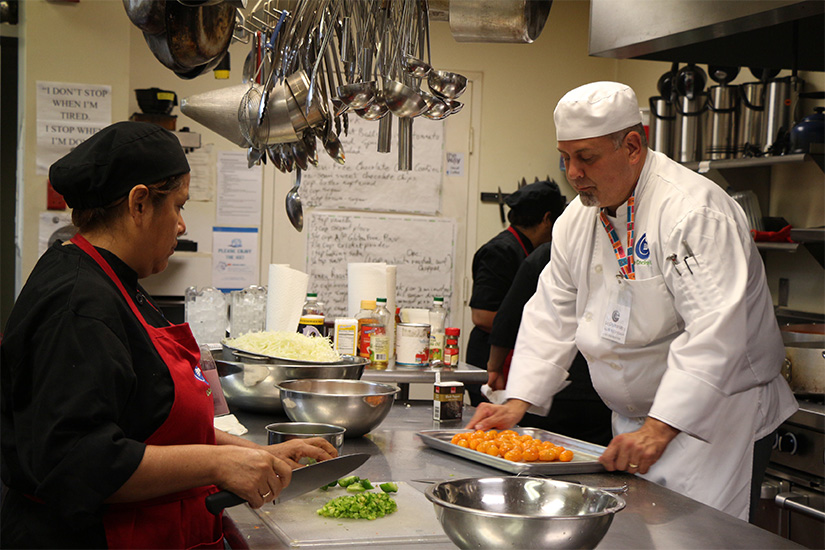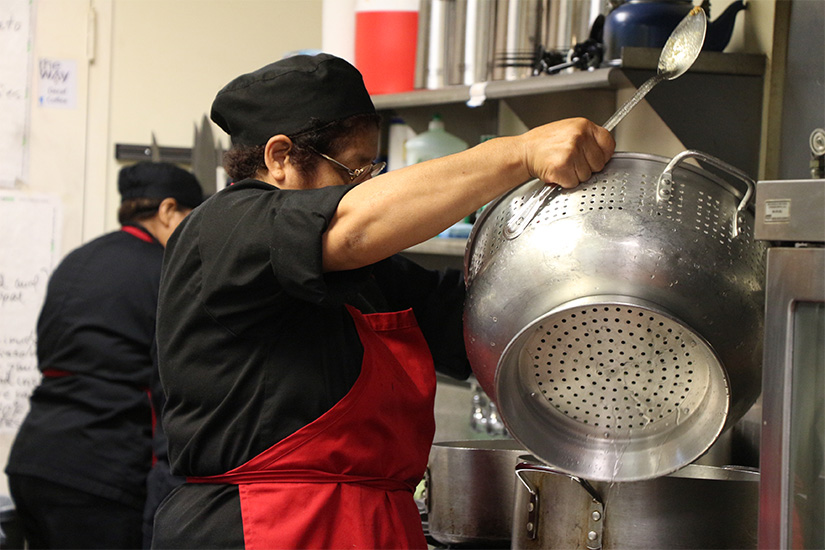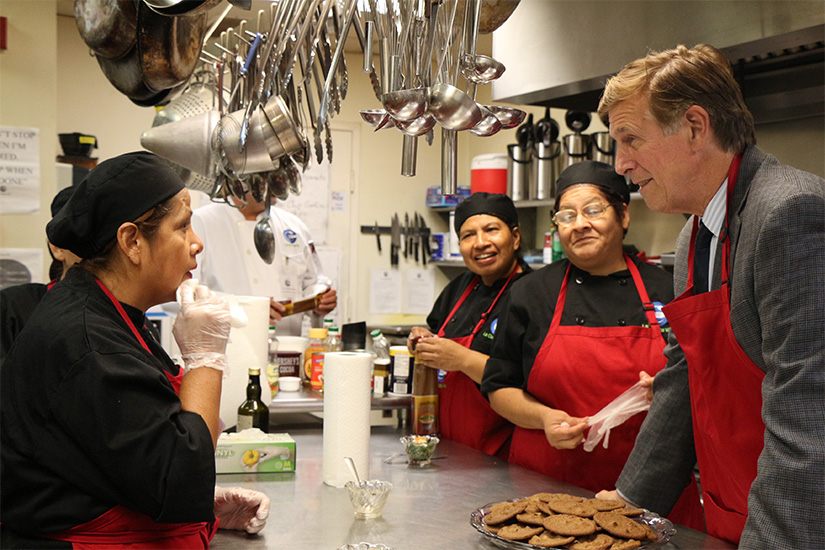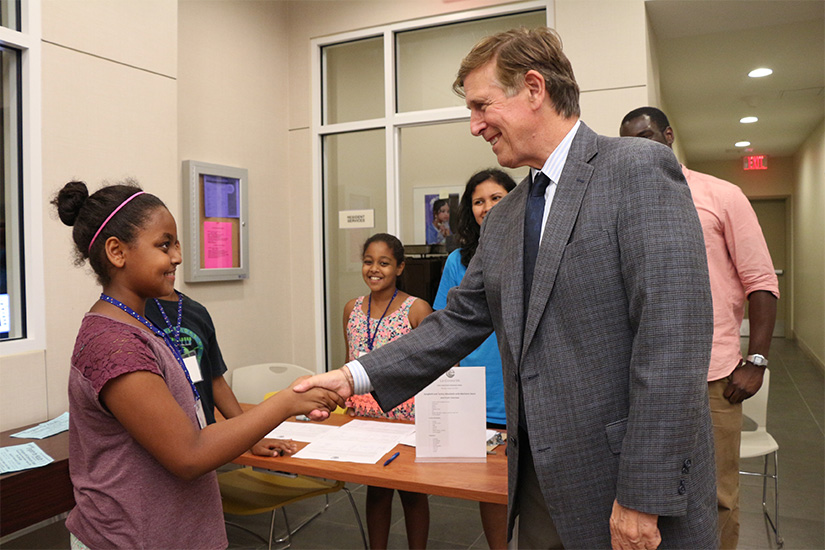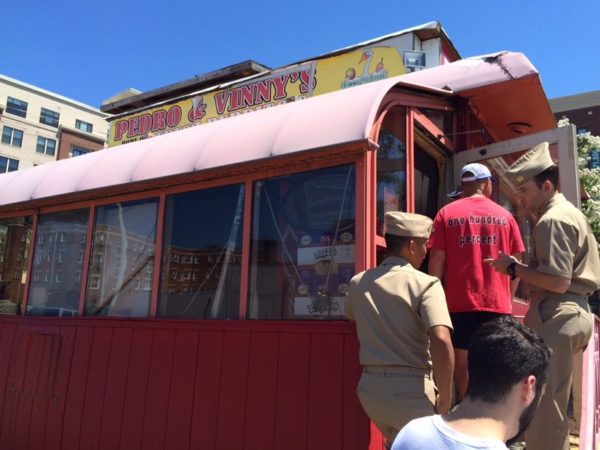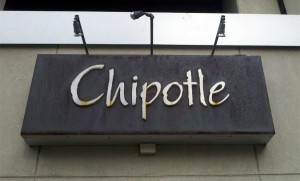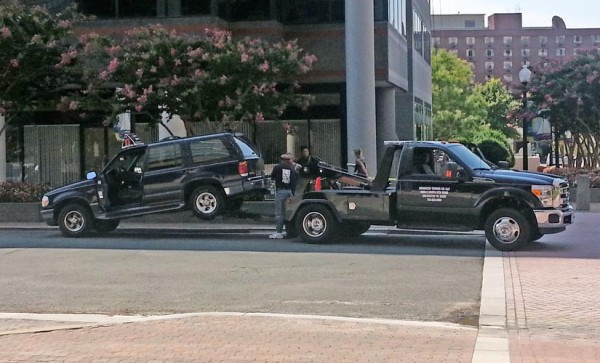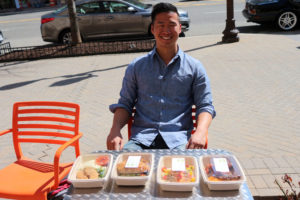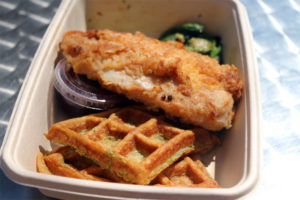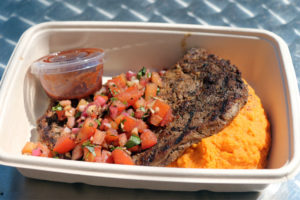The following is the first in a weekly series of articles about a “day in the life” of companies at the MakeOffices coworking space in Clarendon. The mini-series, which will run this fall, is sponsored by MakeOffices.
“Okay, let’s do the stand-up meeting now. What’s everyone up to?” says Shy Pahlevani, co-founder of Hungry, an app-based food delivery service.
The nearly 20 employees at the startup take Pahlevani’s cue and begin with the morning routine of everyone standing up for a few minutes while announcing what they’re working on. It’s this kind of collaborative model that the business says helps it thrive.
And thrive it does. In its first month after opening to the public, Hungry sold more than 1,000 meals and has goals to further expand.
After everyone has had a turn at the morning meeting, some employees remain in Hungry’s office space at MakeOffices Clarendon to go about their tasks, such as marketing and coordinating deliveries. Others scatter to some of the areas that Hungry shares with the other coworking space occupants.
A few Hungry employees, including Director of Chef Onboarding Laura Medina, head to the kitchen to prepare for one of the chefs who’s bringing in his dish of the day. It’s the chef’s chance to show off what food he can offer, and this particular dish will be available for Hungry users to purchase for delivery the following week.
“For the rent that we spend, we’re grateful to have great looking countertops and a gourmet-looking kitchen,” says Pahlevani. “It’s very appealing when we take pictures of our food and pictures of our chefs when we use this environment here.”
The Hungry team helps the chef set up his food in various parts of the kitchen that will allow for the best photographs. Contract photographer Reema Desai takes a prepared dish over to the window that overlooks Clarendon Boulevard to get a little more natural light on the display. As she arranges the food, she turns it slightly one way, then adds a napkin, then fluffs some of the garnish. She’s trying to use the light to maximize all the available textures and colors. “[The chefs] make it easy for me. The dishes already have a lot of bright, different colors and I just try to bring that out,” she says.
Designer Collin O’Brien works with the newly snapped photos. He’s populating the app with them and ensures the presentation works across all platforms — internet, iOS and Android. Getting customers to buy the food is all about quality and presentation.
Marketing can be one of the most difficult aspects for a fledgling small business to master, but Hungry employees say the coworking environment actually makes it easier. Again, it comes back to collaboration, this time outside of the immediate Hungry team. “It’s a really great base for word of mouth,” says Pardis Saremi, Hungry’s director of public relations.
She explains that employees at other businesses in the coworking space get interested when they see the food displays and try the service themselves. That has led to many becoming customers of the delivery service and talking it up to others. “They’re telling their friends. I also had someone say they know chefs that would love to cook on our app. The connections and the word of mouth is just so, so helpful,” Saremi says. The on-site connections also have led to two other MakeOffices occupants booking Hungry’s chefs — through the app — to cater events.
She also credits the MakeOffices newsletter that goes out to all coworking office occupants with drumming up interest in Hungry’s events and promotions. About 300 people showed up at the startup’s first food event, just based on word of mouth among the coworking office occupants. That definitely wouldn’t have been the case in a standalone building, says Saremi.
“The food business is very tough. So getting people to try our dishes and recommend us to friends is really how we’re going to grow,” says Pahlevani. “Being able to start in a space that’s 40,000 square feet and has 70 plus companies is an easy way… to get some traction early, just leveraging the folks here.”
Potential customers aren’t the only thing office interactions have produced; the Hungry employees also have forged mutually beneficial business relationships. “It’s a great way to attract talent from other startups that may have complementary businesses and can support the things we’re doing,” Pahlevani says. “We’ve met photographers from other groups that are now helping us. We’ve met social media gurus that are now helping us.”
Saremi agrees, further explaining how employees constantly gain unexpected knowledge for improving the business. “I met a guy in this building who does something in physics and he was giving us ideas on things to do with our packaging to keep the food warm,” she says.
Sometimes the employees finish their daily tasks during what would be considered a traditional “quitting time.” But with all the action from the chef’s visit, this may end up being one of those times the work day stretches longer into the evening. “When you start a startup it’s a lot of hard work,” says Pahlevani. “It’s very motivating to see a lot of other people staying past 9 p.m. It encourages our employees.”
The Hungry employees are proud of the hard work they’ve put into the business and how much it already has grown, which makes the time pass quickly, says Saremi. “There’s definitely an entrepreneurial spirit and everyone is so supportive of each other in this space,” she says. “You meet so many people… you see everyone growing in this space.”
Expect to hear more about Hungry in the coming months: the company just announced that it raised $2.5 million in seed funding, in a round led by New York-based Timeless Capital.


